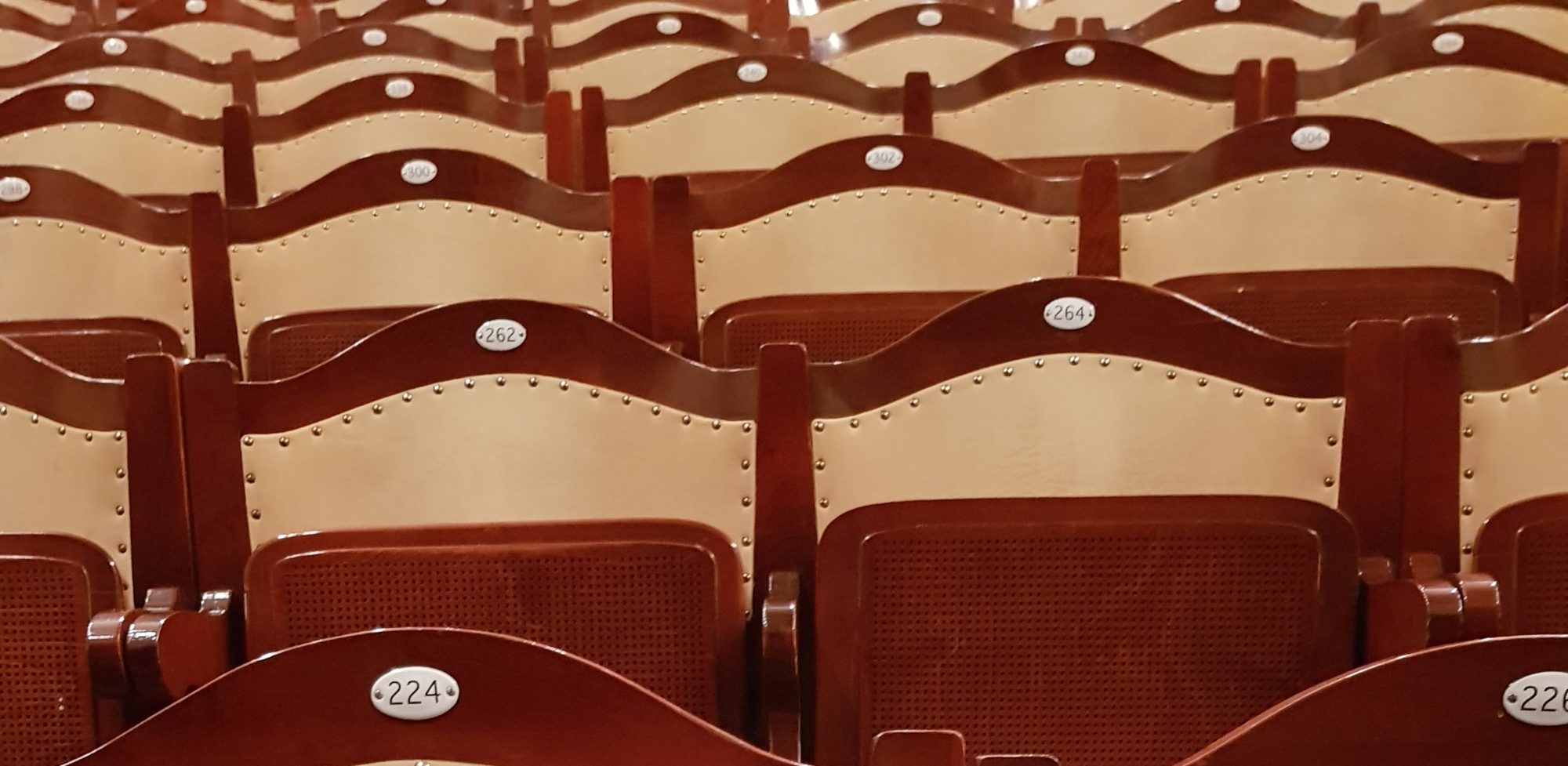It’s been several years that I am going to the opera and I am scandalized by the mediocrity and the absurdity of staging. The problem being that this phenomenon is not rare, on the contrary, it has settled during the last decades.
Indeed, it is not uncommon to hear people booing the staging and yet nothing changes. We continue to give all the power to these artists, these great thinkers. We remain in this incomprehensible model of incoherence and, when we are lucky, we are satisfied with the feeling of “it did not disturb”. Excuse me? What did you say? A lucky chance? My bad…
That amazes me!
It seems to me that staging should participate in the success of the Opera, respect it, at least. I have often been able to hear people trying to find explanations, analyze what the director would like us to understand, what he would like to pass as a message, often unrelated to the work. In my opinion, from the moment we have to explain art to understand it, especially in music, then we move away from what art is. As Debussy said, “Music must humbly seek pleasure” and so should art do too. If we are forced to intellectualize art, it loses all its meaning.
I have the impression that we use the opera scenes to convey ideas that do not serve the work, often outright provocations. Commited scenes do not revolt me, on the contrary. Indeed, if the commitment, or the provocation of some staging is related to the text, respects the interpreters and the score, I say: Bravo . But to use singers like puppets to make them do anything, to make them sing at the back of the stage (without any acoustic help) or sing upside down, doesn’t do their voices justice and is a lack of common sense. To remove elements from the score or not to respect the specific wishes of the composers just doesn’t make any sense. I’m thinking, for example, of the Guillotine in the “Dialogues des Carmelites” of Poulenc. This is an entire part of the score and libretto (sound of the guillotine in action and choir voices disapearing one by one…). In the Munich production it was replaced by gas chambers and people surviving when they should not, loosing all the links with the libretto and the score. It is just one example out of hundreds. This is disrespectful and it is not a different interpretation but a deliberately distorted narration: it is inadmissible and should not be allowed.
It would be as if the conductor decided that the solo of Thais’ meditation should be played by a Xylophone, or that the musicians decide to play an improvisation whenever it isn’t written .
And yes, I can already hear the reactions: “No, we will not do re-staging of dusty, classics. We need new, we need change, we need to shake things up!” But I must say that the clean style sets, suits and ties costumes, the naked men, the men in heels, the scenes of sex, the blood everywhere… there is nothing new here. It has been seen over and over again!
So, yes, let’s use the modern means instead. The technology for the benefit of all as in the exhibition in Vienna “Insights into Bruegel” that one had the pleasure to discover through Culturmania’s eyes or as in the latest production at the Munich Opera of Krenek’s “Karl V” created by the great and innovative Fura del Baus. It is brilliant, it is good, so : it is possible! But doing just anything to change or be provative is a bad excuse for the lack of inspiration and ignorance of some.
I had the experience, in Paris during a concert version of “die Wallküre” at the Champs Elysées Theater, to hear one in the public screaming: “Thanks! we can finally enjoy the music without being disturbed by an absurd staging!!” and everyone applauded… It’s sad to get to this point.
Staging is part of a show, a performance at the Opera. The Sight and Hearing should work together to give us a successful evening. It is also the responsibility of the Opera Houses worldwide to no longer accept that stage directors are allowed to be all-mighty, capricious, or not professional. Because as we can see, concert version works just as well and may work better and better. Shouldn t the Opera Houses ask themselves : What does the public want?
The public knows what they came to hear, in fact, they chose to come to hear it. Subtle respect for the interpreters, the text and the score is, in the end, all that is asked for. Staging should serve the Opera first, like the singers, the conductors, the musicians. Add a touch of dream, humour, poetry, emotion and most of all to take us further, allow us to extricate ourselves from reality for a few hours… It is in fact simple.
Erica Luisella
